100 Greatest Literary Detectives
100 Greatest Literary Detectives
Edited by
Eric Sandberg
ROWMAN & LITTLEFIELD
Lanham Boulder New York London
Published by Rowman & Littlefield
An imprint of The Rowman & Littlefield Publishing Group, Inc.
4501 Forbes Boulevard, Suite 200, Lanham, Maryland 20706
www.rowman.com
Unit A, Whitacre Mews, 26-34 Stannary Street, London SE11 4AB
Copyright 2018 by The Rowman & Littlefield Publishing Group, Inc.
All rights reserved . No part of this book may be reproduced in any form or by any electronic or mechanical means, including information storage and retrieval systems, without written permission from the publisher, except by a reviewer who may quote passages in a review.
British Library Cataloguing in Publication Information Available
Library of Congress Cataloging-in-Publication Data
Names: Sandberg, Eric, editor.
Title: 100 greatest literary detectives / edited by Eric Sandberg.
Other titles: One hundred greatest literary detectives
Description: Lanham, Maryland : Rowman & Littlefield, 2018. | Includes bibliographical references and index. |
Identifiers: LCCN 2017050362 (print) | LCCN 2017055749 (ebook) | ISBN 9781442278233 (electronic) | ISBN 9781442278226 (cloth : alk. paper)
Subjects: LCSH: Detectives in literatureDictionaries. | Fictitious charactersDictionaries.
Classification: LCC PN3448.D4 (ebook) | LCC PN3448.D4 A16 2018 (print) | DDC 809.3/872dc23
LC record available at https://lccn.loc.gov/2017050362
 The paper used in this publication meets the minimum requirements of American National Standard for Information SciencesPermanence of Paper for Printed Library Materials, ANSI/NISO Z39.48-1992.
The paper used in this publication meets the minimum requirements of American National Standard for Information SciencesPermanence of Paper for Printed Library Materials, ANSI/NISO Z39.48-1992.
Printed in the United States of America
Acknowledgments
This book is a collective endeavor. It would not have been possible to present such a wide range of detectives without drawing on the experience, expertise, and enthusiasm of the many talented contributors to this volume; my first thanks are due to them. I would also like to acknowledge the important role played by the Crime Studies Network, the International Crime Fiction Research Group, and particularly the International Crime Fiction Association, run by Fiona Peters, Agnieszka Sienkiewicz-Charlish, and Joanne Ella Parsons, in developing this project and in promoting the study of crime fiction in general. Professor Elise Krkkinen from the University of Oulu has been tremendously supportive of my work, for which my sincere thanks. Finally, I want to thank Johanna and the Worlds Greatest Detectives, who have shared with me for many happy years the delights of crime.
Introduction
The Character of Crime
Its never easy trying to figure out a detective.1
If you love crime fiction, you will hate this book. Why? You will hate it because a list of the hundred greatest fictional detectives will almost certainly be missing one, if not several, of your favorite hard-boiled private eyes, dedicated police officers, or amateur sleuths. The world of crime fiction is vast, the tastes of crime readers varied, and no selection of investigators could possibly satisfy everyone. Your outrage at the omission of your personal favorite is as inevitable as it is justifiable. But more important than this anger is what it tells us about both the idea of greatness and the nature of crime fiction.
First, greatness, despite the title of this book, is a concept that needs to be handled with considerable caution. This is not to say there is no such thing as literary greatness. If Sir Arthur Conan Doyle is not a great mystery writer, and if Sherlock Holmes is not a great fictional detective, what are they? But difficulties arise nonetheless in attaching the label to particular writers and their creations, even in a case as seemingly clear-cut and as indisputably canonical as this, and agreement on the assignment of the term is elusive. Marshall McLuhan, for example, in his admittedly generally negative comments on crime fiction, reserves his most withering invective for Conan Doyle: Obsessed with the psychic stench that rose from his own splintered ego, and his creation, the arrogant, sterile Holmes.2 And if Holmes cannot be safely considered great, what then of the many less well-known, less thoroughly established detectives to be found in these pages, and outside of them?
Many critics would simply reject the idea of greatness, in literature or elsewhere, full stop. Barbara Smith has argued that all value is radically contingent. It is not a fixed attribute, an inherent quality, or an objective property of, for example, a work of fiction; value does not belong properly to the work itself. It exists instead, Smith explains, as the effect of multiple, continuously changing, and continuously interacting variables, such as economic, social, and personal factors. If we accept Smiths argument, it would be axiomatically impossible to identify greatness with any reliability.3 Yet as Smith acknowledges, there are extensive demotic languages of popular criticism, the hits and flops, the masterpieces and epic fails of daily conversation, the very existence of which shows us that value judgments are among the most fundamental forms of social communication.4 While we may thus sensibly mistrust the practice of valuation, it is not something we can simply stop doing.
We might say, then, that the idea of literary greatness, in this case great crime writing, is notor is not onlya fixed quality of authors and their works but a social construct, a necessary agreement, as it were, among readers, writers, and critics to embrace and reward certain traits, be they ways of writing sentences, ways of structuring plots, or ways of developing and presenting characters. And since an agreement is subject to development, evolution, and even radical change, the investigative figures discussed here represent not a definitive statement of greatness but a contribution to an ongoing discussion of crime fiction.
This still leaves us, however, with a problem, and one that is particularly relevant to a work of this sort: the fact that the assertion of valueof greatnesscan, and frequently does, become self-perpetuating. The recommendation of value represented by the repeated inclusion of a particular work in anthologies, Smith writes, not only promotes but goes some distance towards creating the value of that work.5 Canon formation, in other words, is far from being an innocent activity, a bland and objective recognition of literary value. Instead, it is an active assertion ofeven an attempt to createthe value it ostensibly identifies. There is nothing wrong with this, but it does mean that we must be aware of what we are doing when we contribute to the construction of a canon by creating lists like the one in this book. It is on these grounds, in part, that this volume attempts to cast its net as widely as possible over the vast body of international crime fiction; if your favorite detectives are not featured on these pages, as they no doubt deserve to be, it may well be that their absence is a strategic recognition of the need to constantly challenge any tendency toward stability in the canon, and to actively look for new voices (be they contemporary or historical) who bring new elements to our vision of greatness in crime fiction and of the great detective.
The second thing we can learn from our outrage at discovering that Sergeant X or Detective Chief Inspector Y has not made the cut is that crime fiction matters. While the form has long occupied a culturally central position as one of the most broadly, reliably, and persistently popular forms of literature, it has also been seen as faintly disreputable and undeserving of serious consideration. At its mildest this type of criticism has coolly discussed crime writing as mere detective-story; at its strongest it sees the genre as a menace to civilization.6 Part of the function of a book like this is to refute these aspersions by contributing to the now substantial body of work that recognizes crime fiction as a distinctive and valuable element of literature that cannot, or should not, be segregated into the ghetto of genre fiction. It is, in short, a form that it is worth getting angry over.
Next page
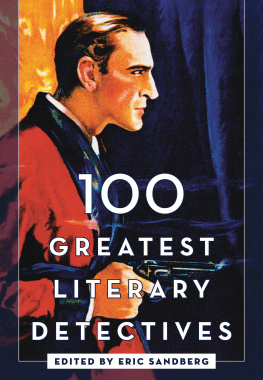

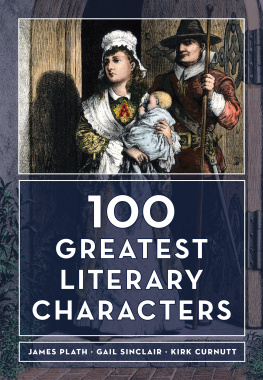
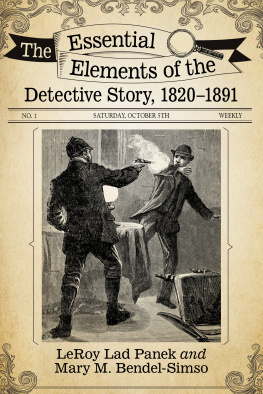
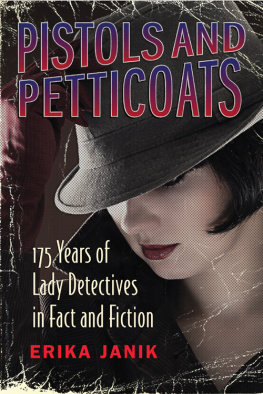
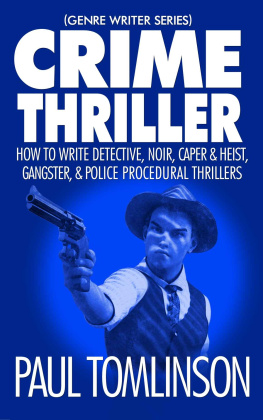
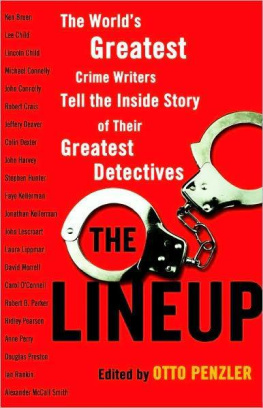
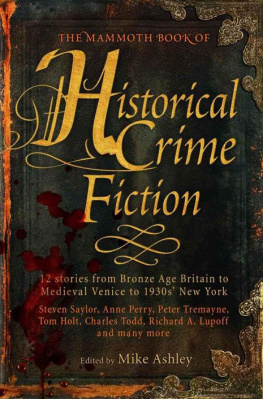
 The paper used in this publication meets the minimum requirements of American National Standard for Information SciencesPermanence of Paper for Printed Library Materials, ANSI/NISO Z39.48-1992.
The paper used in this publication meets the minimum requirements of American National Standard for Information SciencesPermanence of Paper for Printed Library Materials, ANSI/NISO Z39.48-1992.